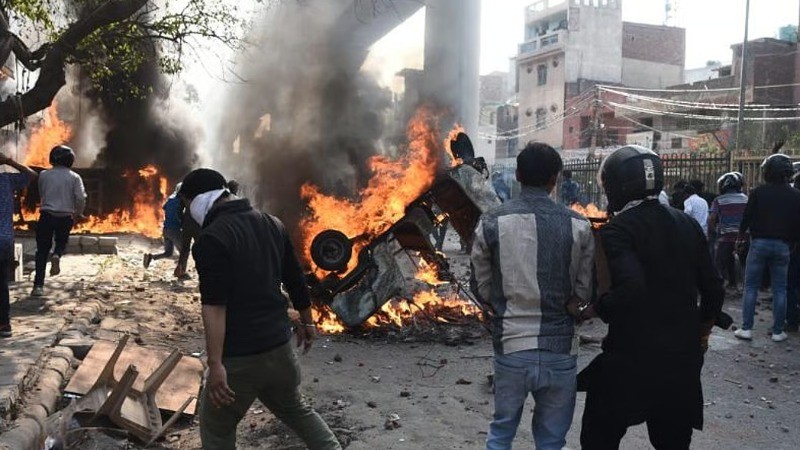
Just a day before the scheduled hearing in the 2020 Northeast-Delhi riots conspiracy case in the Supreme Court, Delhi Police on Thursday opposed the release of allegedly involved student activists Umar Khalid, Sharjeel Imam, and three others, who were booked under the Unlawful Activities (Prevention) Act (UAPA).
In the 177-page affidavit filed before the Supreme Court, the Police argued that the alleged offenses were undertaken as a deliberate attempt to destabilize the state, and were to be given a "jail, not bail." It stated that the violence which erupted in February 2020 was not merely protests against the Citizenship Amendment Act (CAA), but a "coordinated regime change operation" carried out in the form of civil dissent. The prosecution added that the plan was to cause communal tensions during the visit of US President Donald Trump, so that the unrest could make international headlines, projecting the Indian Government as discriminatory.
Earlier, a bench of Justice Aravind Kumar and NV Anjaria had asked the enforcement agency to consider whether the accused could be released on bail. Several of the accused have been in jail for nearly five years as undertrials in judicial custody.
The apex court bench remarked on Monday, "See, if you can think something...five years are over already." If there is a prolonged delay, without any substantive progress, then the trial may turn in favor of a temporary release.
If it is an ordinary criminal law, then "bail is the rule, and jail is the exception." But, when it comes to the UAPA, before granting bail, the courts ensure that the allegations don't, even at a prima facie level, do not suggest involvement in any terrorist activity. To which, the Delhi Police said, "It isn't met here."
The investigators have ocular, documentary, as well as technical evidence which reveals that the accused were part of a "deep-rooted conspiracy", planned on the basis of communal lines. The prosecution pointed out that the violence was executed in an orchestrated pattern, with other incidents of unrest reported in parts of Uttar Pradesh, Assam, West Bengal, Karnataka, Kerala, Maharashtra, and Bihar, calling it a "pan-India plan."
It further blamed the accused of delaying the trial deliberately, mentioning that the supply of documents took 39 hearings in two years, while the framing of charges was on hold for about 50 hearings. In its judgment, the Delhi High Court also said that the defense has contributed to the delay.
Meanwhile, the accused maintain that they were only exercising their right to protest, and the "larger conspiracy" case is an attempt to criminalize dissent. Further arguing that incarceration for an indefinite period without trial is equal to "punishment before conviction."
The hearing on Friday will be a significant one for the case, with the SC expected to examine the question of delay and the legal threshold under the UAPA. The High Court has denied bail to the accused, calling their roles in the alleged conspiracy as "prima facie grave."